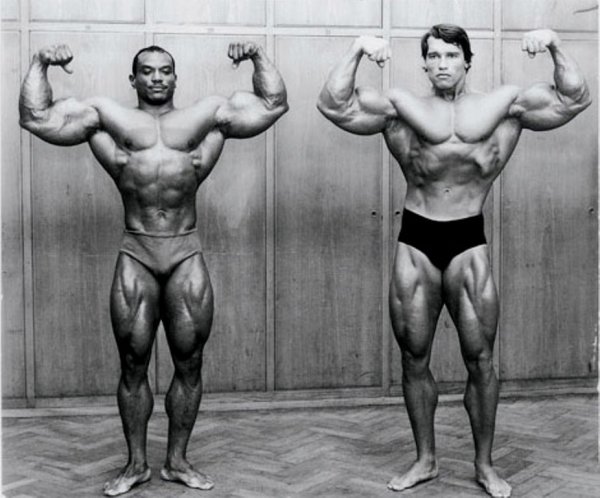
The Role of Genetics in Bodybuilding: Myths and Reality
What is the fault of our genetics for not being able to build muscle, burn excess fat, and generally be in shape? The answer may surprise you … Very small.
“I am not able to get big / dry / strong – all because of this genetics.”
I hear this a lot – both in the gym and outside. Genetics is the best scapegoat for all occasions. We blame her for both failed attempts to build muscle, and for the failure to lose weight. But how much does genetics actually affect our success?
In fact, much less than you would like to think. While everyone has different metrics on how well or not well certain muscle groups are developing, hormone levels, and the propensity to store and burn fat, EVERYONE can achieve great shape.
You are trying to develop your own body for yourself, and not repeat the path of someone else.
Imagine that your body is a plant. Give the plant the right conditions and it will grow and bloom. And if this does not happen, then something is wrong. Perhaps this is due to harmful insects, a lack of light or an excess of water. The same applies to your body: if you are not making progress, there is always a specific reason for this.
Success in bodybuilding rests on three pillars: training, recovery and nutrition. Most people have two of these pillars in order at best. Moreover, most, in fact, only focus on exercise, while their nutrition and sleep are simply disastrous. You shouldn’t even dream of a good physique if you neglect the basics.
Most of us fall short of Schwarzenegger’s potential, but that doesn’t mean we can’t achieve our own goals. For example, look at the guy next to Arnold, Frank Zane.
He had short collarbones, a long torso, arms 35 centimeters. He weighed 86 kg with a height of 176 cm. In short, he had simply the worst genetics for professional bodybuilders.
However, he defeated Mr. Olympia three times and defeated Arnold himself!
How did he do it? He stuck to his diet, trained with incomparable intensity, and always walked to the end. He understood that he could not compete with Arnold in mass, so he created such a correct body shape that many still call it the maximum that a person can strive for.
Frank Zane’s story is inspiring. The first step is to honestly evaluate yourself, your training regimen, and your experience to develop a plan that works best for you.
What’s your goal? Building muscle in the upper body? Raised legs?
If your training progress drags on like a turtle, it may be worth exercising less frequently to give your body time to recover. In addition, you can select those parts of the body that, in your opinion, are not sufficiently developed, and train them twice a week. Think of your body as a work of art. You are a sculptor, and it is in your hands to make your body perfect.
For example, if you have a wide waist, you should not waste time on questionable training to “narrow” it, but rather work on making your shoulders wider . The wider the shoulders, the smaller the waist will look. If you have long arms, you can’t shorten them with biceps curls.
Do pull-ups every workout – yes, every workout. Ask a gym mate to touch the muscle you are trying to develop – studies have shown that muscles work 30% better due to the sensation of touch.
Also, stop exercising and start exercising. Exercise means “increasing the ability to accomplish a task.” If after a year of classes you work with the same weights, it means that you have not become better this year. Give your best in every workout – train your muscles, not your joints.

Just repeating the required action will not get the maximum effect. Instead, try to feel each repetition. Training is a lifestyle. And the lesson is something nice and calm, like a French course every two weeks. The only way to learn French is to travel to France and speak only French.
The same is true for your body – this is a work that lasts 24 hours a day, 7 days a week. Training, food, rest and education.
Remember: body work is not a competition with other people. You do it for yourself. If someone is gaining shape faster than you or with less effort, as you think, do not be discouraged. Don’t drive yourself crazy with the argument that you can’t achieve anything because of damn genetics. The time you spend crushing is far better spent preparing healthy meals or exercising.
Keep working hard!
